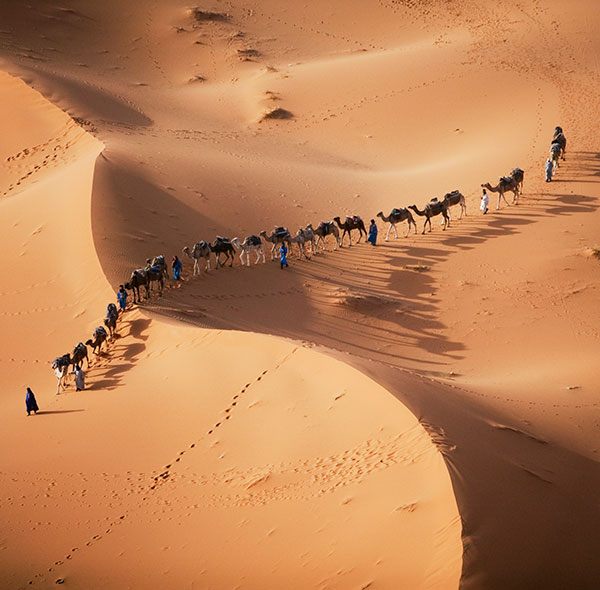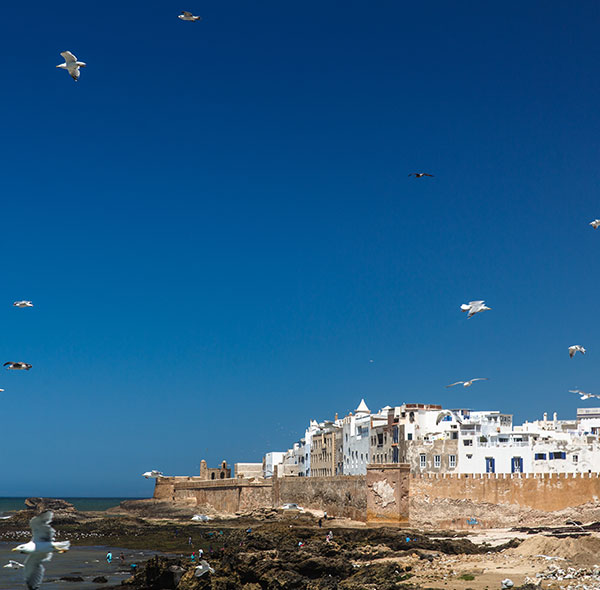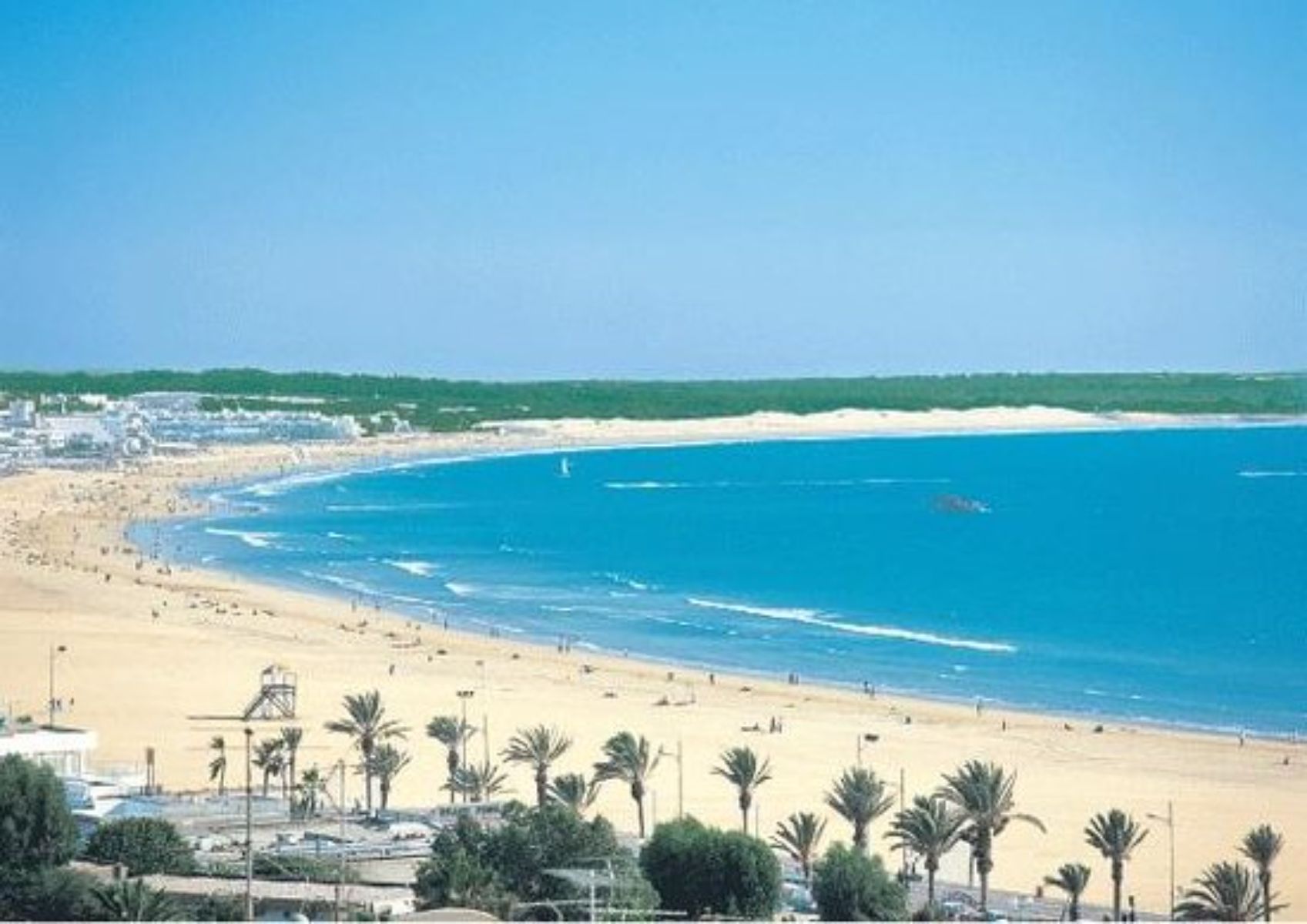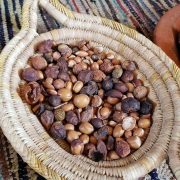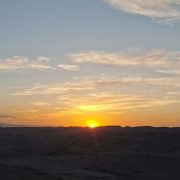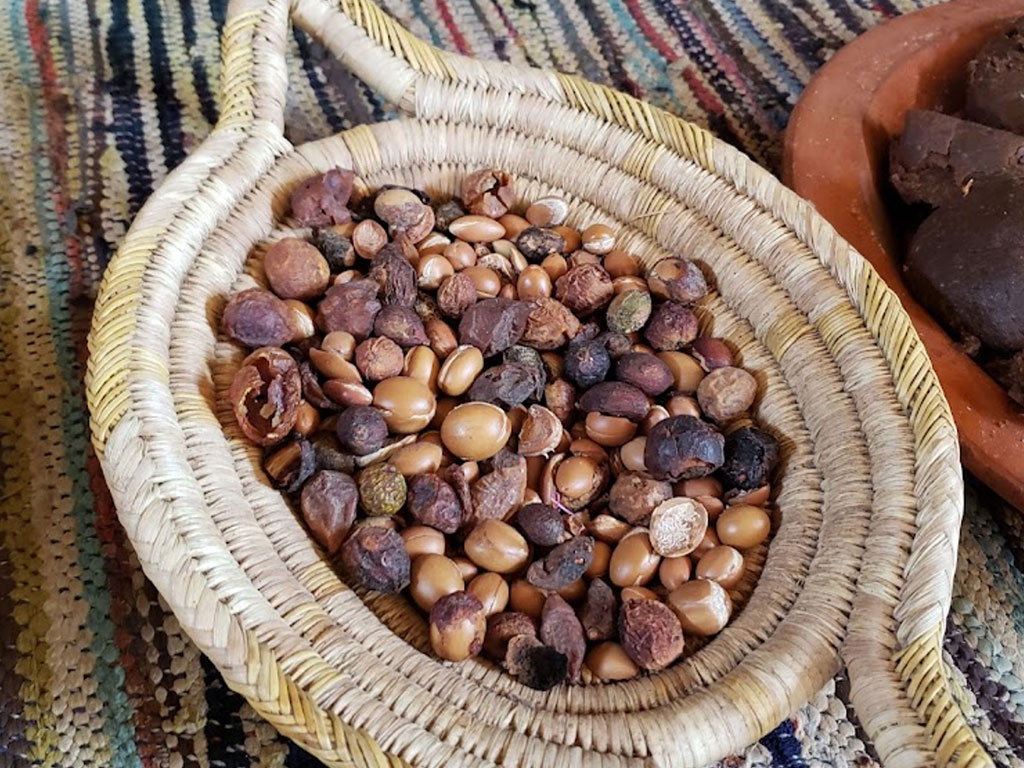
Argan Oil: From Moroccan Tradition to Global Luxury
Table of Contents
Introduction: The Liquid Gold of Morocco
Once upon a time, in the arid landscapes of Morocco, a precious liquid gold silently nurtured itself within the tiny kernels of the Argan tree. This treasure, known today as Argan oil, has journeyed from the Berber communities of Morocco to the shelves of high-end cosmetic stores across the globe. Argan oil, a rare and luxurious substance, is not just a beauty elixir but a symbol of an ancient culture and a lifeline for many.
Historical Background: A Legacy Rooted in Time
Argan oil’s story begins in the groves of Morocco, where the Argan tree, Argania spinosa, has grown for millions of years. This resilient tree, adapting to harsh climatic conditions, has been a source of sustenance and healing for the local Berber people for centuries. The Berbers, who mastered the art of extracting oil from its kernels, have used Argania for culinary, medicinal, and cosmetic purposes, passing down their techniques through generations. Anecdotes of Berber women gathering under these trees, singing as they work, remain an integral part of this oil’s rich history.
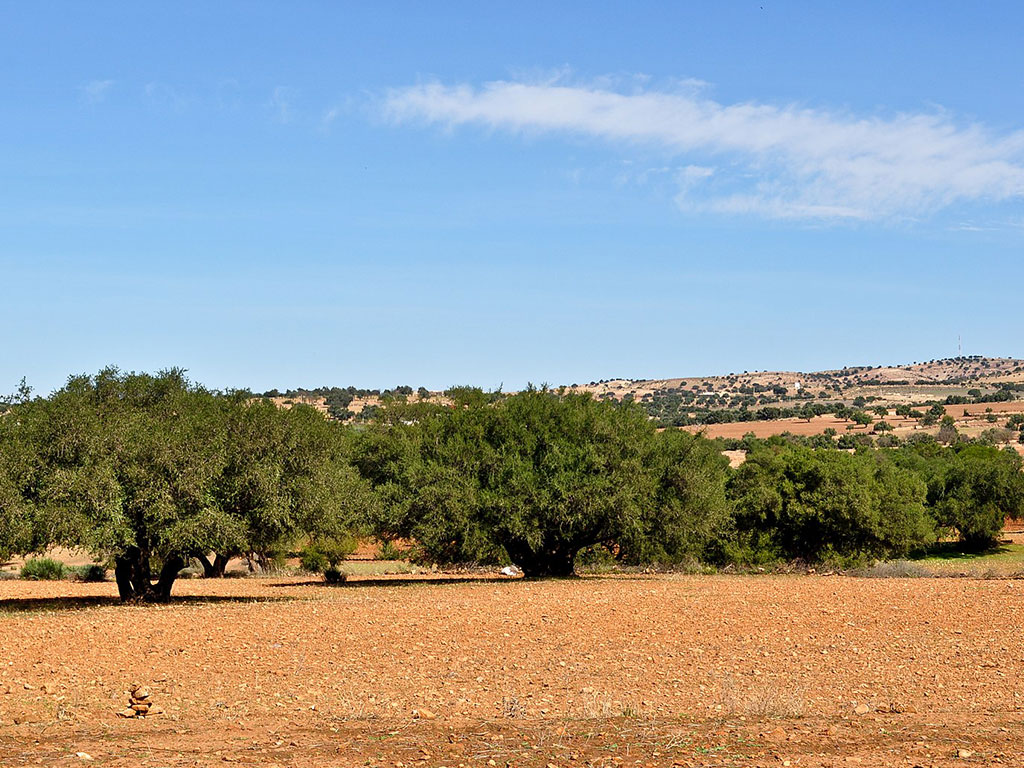
Production Process: From Kernel to Oil
The production of Argania oil is a blend of ancient traditions and modern methods. In traditional processes, local women manually collect the fallen fruits, dry them, and extract the kernels. These kernels are then ground into a paste, from which oil is meticulously extracted. This labor-intensive method ensures the purest form of oil. In contrast, modern techniques use machines for extraction, increasing efficiency but often compromising the oil’s authenticity. The entire process, be it traditional or modern, is a testament to the harmony between the Moroccan people and their land.
Properties and Benefits: A Miraculous Potion
Argan oil is a concoction of beneficial compounds: essential fatty acids, antioxidants, and vitamins, particularly Vitamin E. Its unique composition makes it a powerful hydrating and anti-aging agent. Renowned for its skin rejuvenation properties, it helps in reducing wrinkles and maintaining skin elasticity. For hair, Argan oil is a natural conditioner, promoting strength and shine. Health-wise, its antioxidant properties aid in reducing inflammation, making it a staple in traditional Moroccan medicine.
Culinary Uses: A Taste of Morocco
In the culinary world, Argan oil adds a nutty flavor to dishes. Used traditionally in Moroccan cooking, it’s a key ingredient in Amlou, a spread made with almonds, honey, and Argan oil. This delicious and nutritious oil is now finding its way into modern kitchens, enriching salads, grilled meats, and pastries. For those adventurous in the kitchen, incorporating Argan oil into your recipes can bring a taste of Morocco to your table.
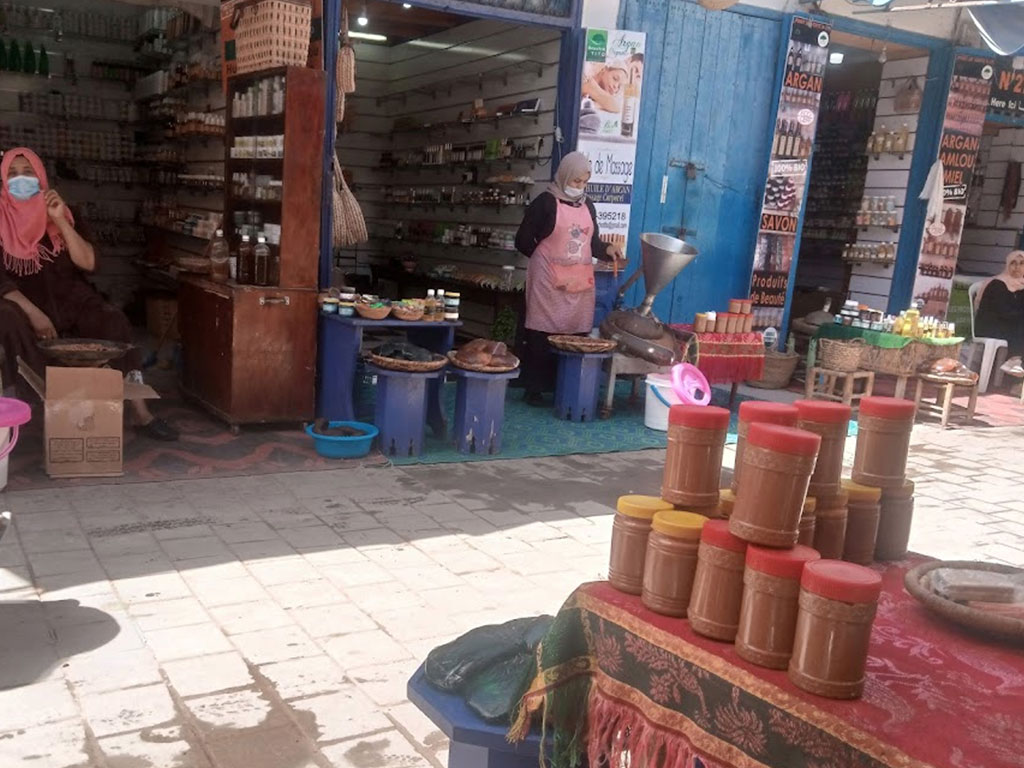
Cosmetic and Therapeutic Uses: Beauty in a Bottle
Argan oil’s journey from a traditional remedy to a modern beauty solution is remarkable. It’s now a staple in many cosmetic products, from moisturizers to hair conditioners. Beyond its hydrating properties, Argan oil is believed to have healing effects on skin conditions like acne and eczema. Testimonials from users around the world praise its natural, gentle effectiveness, making it a coveted ingredient in the beauty industry.
Argan Oil for Hair:
- Nourishment and Repair: Rich in nutrients like vitamin E and fatty acids, Argania oil is a natural treatment for dry and damaged hair.
- Scalp Health: Its anti-inflammatory properties help in soothing scalp conditions, reducing dandruff, and promoting healthy hair growth.
- Styling and Shine: A few drops can be used as a styling agent, giving hair a glossy, frizz-free finish without leaving it greasy.
Argan Oil Shampoo:
- Gentle Cleansing: Argania oil-infused shampoos offer a mild and nourishing cleansing experience, ideal for all hair types.
- Restorative Properties: Regular use can restore the natural shine and strength of hair, thanks to the oil’s rich nutritional profile.
- Color Protection: It’s also beneficial for color-treated hair, helping to maintain color and prevent dryness.
Argan Oil for Skin:
- Hydration: Its moisturizing abilities are excellent for dry skin, absorbing quickly without leaving an oily residue.
- Anti-Aging Effects: The antioxidant properties help in reducing the appearance of wrinkles and fine lines.
- Acne and Skin Irritation: Its non-greasy nature makes it suitable for oily skin types and effective in calming skin irritations and reducing acne scars.
Argan Oil Benefits:
- Versatility: One of the most versatile oils, suitable for all skin and hair types.
- Natural Composition: Free from harsh chemicals, making it a preferred choice for those seeking natural beauty products.
- Therapeutic Properties: Often used in aromatherapy and massage oils for its soothing effects and pleasant, nutty aroma.
As we delve into the diverse applications of Moroccan oil in beauty and therapeutic products, its status as ‘liquid gold’ in the cosmetic world becomes increasingly justified. This versatile oil not only enhances external beauty but also offers various health benefits, embodying a perfect blend of tradition and modernity in skincare and haircare realms.
Socio-economic Impact: Empowering Communities
Moroccan oul production has become a pillar for empowering women in rural Morocco. Cooperatives, mostly run by women, have sprung up, providing them with income, education, and a sense of community. These cooperatives not only boost the local economy but also help preserve traditional practices. Stories of women finding their voice and independence through these cooperatives are as heartwarming as they are inspiring.
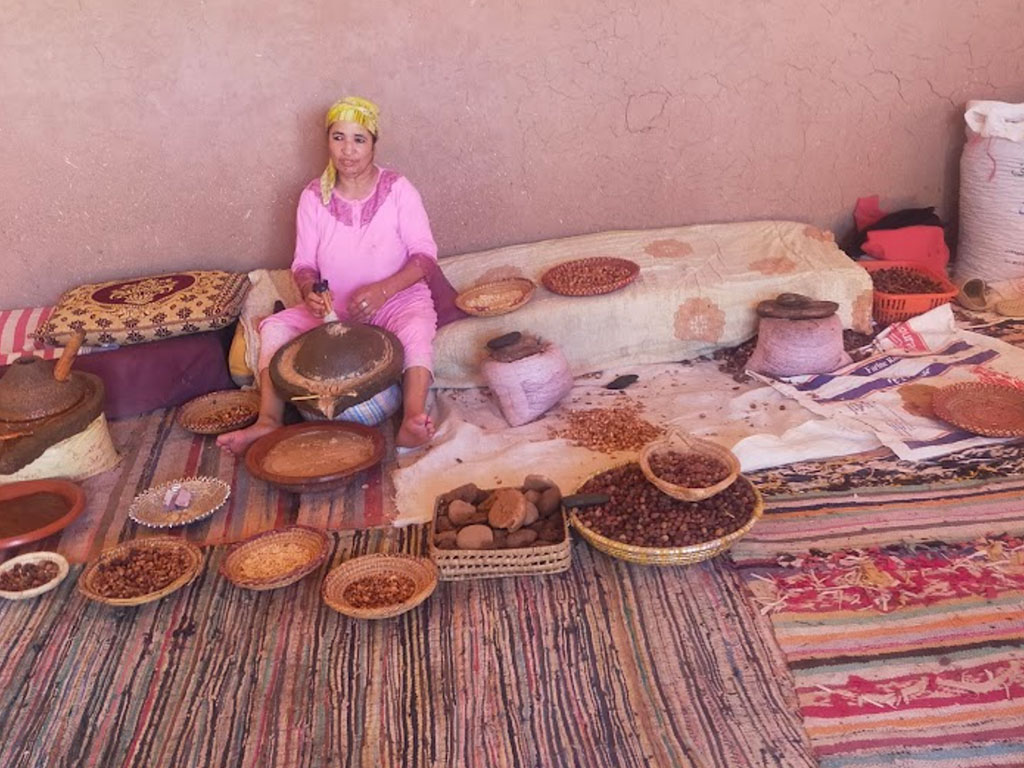
Sustainability and Challenges: Balancing Tradition and Nature
As Moroccan oil gains global popularity, sustainability becomes a crucial concern. Overharvesting and climate change threaten the Argan forests. Efforts are being made to balance commercial demand with ecological preservation. Sustainable practices, like regulated harvesting and reforestation, are being implemented to protect this precious resource.
Global Market and Trends: The Rising Star
On the global stage, Argania oil is a rising star. Its popularity in the beauty and culinary industries is soaring, with an increasing number of consumers seeking natural and ethical products. The market trend shows a growing demand, but it also highlights the need for responsible sourcing and fair trade practices.
Conclusion: A Drop of Heritage
Argan oil, more than a mere product, is a drop of Morocco‘s heritage, embodying centuries of tradition, the resilience of its people, and the generosity of nature. As we embrace this golden elixir, let us also acknowledge and respect the culture and efforts behind it. Argania oil is not just a commodity; it’s a story of survival, beauty, and empowerment.
Frequently Asked Questions about Argan Oil
What is Argan Oil?
Argan oil is a plant oil produced from the kernels of the Argan tree (Argania spinosa) that is endemic to Morocco. It’s used in culinary, cosmetic, and medicinal applications.
Why is Argan Oil referred to as ‘Liquid Gold’?
Argan oil is often called ‘Liquid Gold’ due to its rich, golden color, its luxurious feel, and its valuable properties. It’s also relatively rare and labor-intensive to produce, adding to its value.
Can Argan Oil be used on all hair and skin types?
Yes, Argan oil is versatile and generally safe for all hair and skin types. It’s particularly beneficial for dry, damaged hair and skin due to its moisturizing properties.
How is Argan Oil traditionally extracted?
Traditionally, Argan oil is extracted manually. This involves collecting the fallen fruits, drying them, extracting the kernels, and then grinding and pressing them to release the oil.
What are the main benefits of using Argan Oil in hair care?
Argan oil is known for its nourishing and restorative properties. It helps in hydrating hair, reducing frizz, promoting scalp health, and adding shine and softness.
Is Argan Oil edible and how is it used in cooking?
Yes, Argan oil is edible. It is often used in Moroccan cuisine, adding a nutty flavor to dishes like Amlou (a spread made with almonds, honey, and Argan oil), salads, and grilled meats.
What are the environmental impacts of Argan Oil production?
The increasing demand for Argan oil poses challenges such as overharvesting and pressure on Argan forests. Sustainable harvesting practices are crucial to ensure the preservation of these trees.
How does Argan Oil benefit the communities in Morocco?
The production and sale of Argania oil have significantly empowered women in rural Morocco, offering them income opportunities and promoting gender equality.
Can Argan Oil help with skin conditions like acne?
Moroccan oil has anti-inflammatory and sebum-regulating properties that can be beneficial in managing acne. However, it’s always recommended to consult with a dermatologist for specific skin conditions.
How can I ensure that the Argan Oil I buy is authentic and ethically sourced?
Look for Moroccan oul that is certified organic and sourced from reputable cooperatives. Check for certifications and labels that indicate fair trade and ethical sourcing practices.


